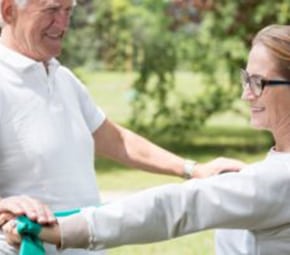It is important that seniors find meaningful things to do during their “Golden Years,” when they tend to have more time on their hands than they have in the past. Research has proven that having a sense of purpose may improve a person’s physical and mental health – and could actually lead to a longer life, which is one of the reasons why the assisted living activities that elderly participate in, are of a very high importance. The assisted living facilities of today know just how good socialization and activities are for their residents, so we work hard to offer a number of different options, including community involvement, socialization, and entertainment, to help senior residents live longer, happier lives.
Assisted living communities inspire seniors to get involved by realizing that their abilities may vary, and offering some kind of activity for everyone. This allows residents to choose an activity that both interests them and fits their own specific needs.
Here are just a few ways that our facilities help seniors get (and stay) involved:
- Field Trips – Whether it is to a local museum, going shopping, or to a sports game, many assisted living facilities host field trips for their residents. Beyond just entertainment, these field trips help keep seniors’ minds young and engaged for improved mental health.
- Workshops and Classes – What better way is there to keep a mind engaged than learning a new hobby or skill! From painting and cooking classes to book clubs and computer workshops, assisted living offers many different ways for seniors to stay engaged. Computer classes may teach seniors about social media, which allows them to stay in touch with loved ones and updated. Learning about the Internet also gives them the opportunity to keep up with current events. Books clubs are perfect for avid readers, and encourage socialization and mental stimulation.
- Fitness – Many assisted living facilities offer fitness classes such as Yoga, Zumba, Tai Chi, or aerobics. Some facilities have personal trainers and physical therapists on staff to help create a workout plan and integrate healthy living habits that are catered to the unique needs of each senior.
- Dancing – A wonderful activity for all age groups, dancing is regularly offered in assisted living facilities. Whether it is line, swing, or ballroom dancing, dancing is not only a fun activity, but also keeps residents social and fit.
- Volunteering – Many seniors find purpose in their lives through volunteering. From handing out informational brochures for their local charity to helping wrap gifts during the holidays, seniors thrive through close involvement with their community and meeting new people. Putting a smile on someone else’s face is sure to put a smile on their own.
For more information on assisted living facilities and how they could help improve your loved one’s life, contact Angels Senior Living today!






